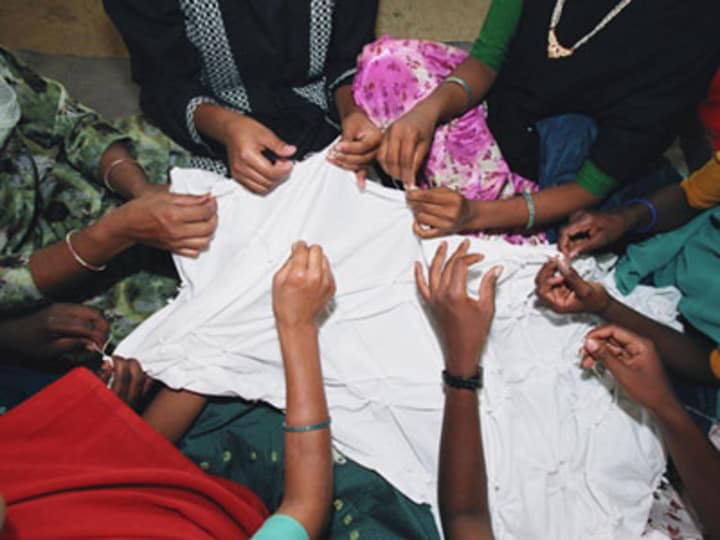
Wal-Mart has suffered in recent times the backlash from a series of garment factory accidents that killed hundreds of sweatshop workers and tarnished the retail giant’s reputation in Bangladesh.
Even the partnership the world’s largest supermarket chain recently entered with the U.S. Agency for International Development has come under close scrutiny after those tragedies. Wal-Mart and USAID last week signed a memorandum of understanding so the latter can use the former’s global supply chains to deliver food assistance under President Barack Obama’s flagship Feed The Future program.
Several labor rights criticized the MoU given the conglomerate’s track record of allegations of disregard and abuse, like sourcing its garments from unsafe sweatshops in Bangladesh or refusing to pay minimum wages to its subcontracted employees in Latin America.
But it’s not too late for Wal-Mart to make amends.
Compensation, commitment
Even after its PR nightmare in Bangladesh, the retail giant can still gain some sort of labor rights credibility in the country, according to the International Labor Rights Forum, a Washington, D.C.-based nonprofit that demands just and humane treatment for workers all around the world.
ILRF spokesperson Liana Foxvog told Devex that to do so, Wal-Mart must immediately pay the full compensation it owes to the victims of two tragedies in Dhaka: the fire at the Tazreen sweatshop that caused 112 deaths in Nov. 2012 and the Apr. 2013 Rana Plaza building collapse, where over 1,000 people perished. The conglomerate admitted sourcing from the local contractor involved in the first disaster but continues to deny any responsibility for the Rana Plaza collapse.
Wal-Mart should also sign the legally-binding Accord on Fire and Building Safety in Bangladesh, added Foxvog.
Last July, over 70 international apparel brands and retailers, international and local trade unions and non-profit groups agreed on a plan to push for landmark changes in the country’s stifling infrastructure landscape, that aggravates the dire labor rights situation in the country. The agreement calls for drastically improved safety standards for construction and includes severe penalties for non-compliance.
Wal-Mart however came up with its own deal that put less responsibility on foreign retailers.
Failure to accomplish these two conditions, according to the ILRF spokesperson, will put any efforts of Wal-Mart to regain labor rights credibility in Bangladesh — even after the partnership with USAID — down the drain.
“Before Walmart has taken these critical steps, their efforts with USAID and as part of the corporate-controlled ‘Alliance for Bangladesh Worker Safety’ will appear like nothing more than PR stunts that will only continue to sideline workers and their unions,” Foxvog told Devex.
Improving labor standards
Bangladesh, where many international apparel brands decide to source their garments from because it one of the lowest minimum wages in the world, is now under increased pressure to improve its record on labor rights and standards. The United States even temporarily suspended trade privileges, barring the duty-free export of some 5,000 products from the country.
But progress has been slow.
Nazrul Islam Khan, secretary-general of the Bangladesh Institute of Labor Studies, explained the labor situation in Bangladesh has always been characterized by low wages and poor employee protection.
“The current labor situation in Bangladesh is fenced by low wages and a poor occupational health and safety system. Owners take the most benefit from the production. Due to the anti-trade union mindset of owners, labor rights have been suppressed,” he told Devex.
So how can these issues be addressed?
Khan said the government, NGOs and the aid community can help by ensuring that labor policies in the country — especially wages and employee protection programs — are in line with International Labor Organization standards.
Factory owners should also be legally required to provide proper compensation and benefits to their workers as well as a conducive working environment through enforcement of labor laws, building code and the Electrical Safety Act and Environment Act. The expert added that a streamlined factory inspection mechanism should be strengthened and upgraded with proper human resource and equipments.
Finally, Khan emphasized that the government should spearhead a national action plan to improve the overall labor situation in Bangladesh, including the incorporation of recommendations made by international labor bodies, and launching a capacity building trainings for safety committee.
Read more development aid news online, and subscribe to The Development Newswire to receive top international development headlines from the world’s leading donors, news sources and opinion leaders — emailed to you FREE every business day.
